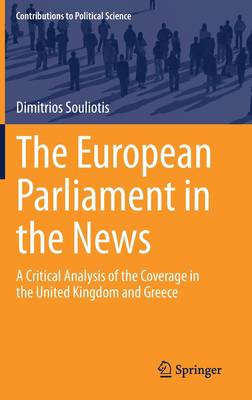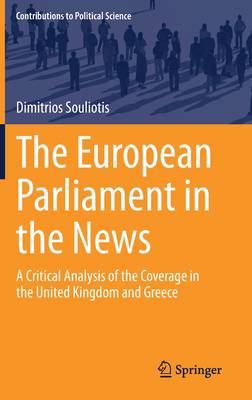
- Retrait gratuit dans votre magasin Club
- 7.000.000 titres dans notre catalogue
- Payer en toute sécurité
- Toujours un magasin près de chez vous
- Retrait gratuit dans votre magasin Club
- 7.000.000 titres dans notre catalogue
- Payer en toute sécurité
- Toujours un magasin près de chez vous
The European Parliament in the News
A Critical Analysis of the Coverage in the United Kingdom and Greece
Dimitrios SouliotisDescription
This book analyzes the social legitimacy deficit of the European Parliament (EP) in the United Kingdom and Greece. It does so by considering it, partially, a communication deficit, and by addressing the relevant inadequacies of its communication and media relations performance. Following this approach, the book identifies and critically analyzes the problems that the European Parliament is facing in communicating and portraying itself to news websites in the United Kingdom and Greece, and offers potential solutions to the issues presented.
The book provides an initial comparison of the scale of the problems that the EP is facing in its communication and media relations performance in Greece and in the United Kingdom, focusing on a number of prominent, carefully selected, impartial or pro-European websites. The failures of the EP to secure adequate levels of visibility on these websites automatically signify serious basic weaknesses in its communication strategy. This bookidentifies those weaknesses, their causes, and presents solutions on how to solve them.
Therefore, this book is a must-read for students and scholars of political science and media communication, as well as policy-makers and practitioners interested in a better understanding of the European Parliament's social legitimacy and communication deficit.
Spécifications
Parties prenantes
- Auteur(s) :
- Editeur:
Contenu
- Nombre de pages :
- 188
- Langue:
- Anglais
- Collection :
Caractéristiques
- EAN:
- 9783030938086
- Date de parution :
- 14-02-22
- Format:
- Livre relié
- Format numérique:
- Genaaid
- Dimensions :
- 156 mm x 234 mm
- Poids :
- 467 g







